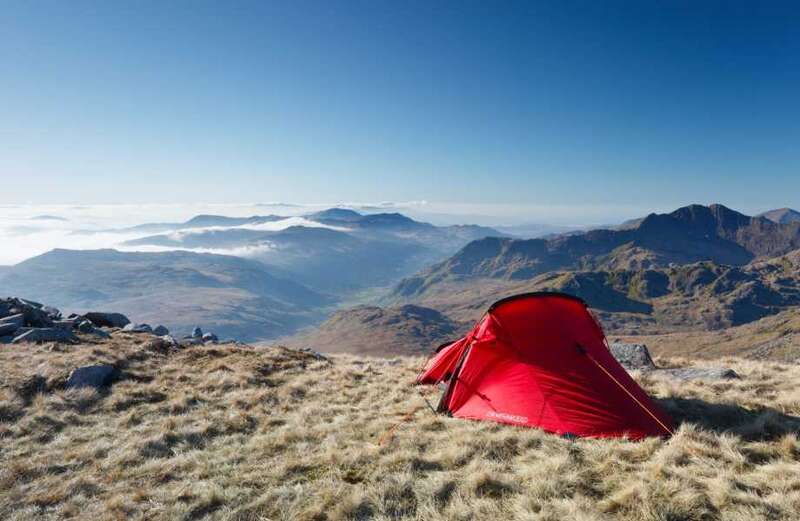WILD Camping sounds like unrestricted fun and adventure, but there are a number of rules to be aware of first.
Here's everything you need to know so you don't end up on the wrong side of the law.

What is wild camping?
Wild camping allows adventurers to choose where to spend the night without being limited to conventional campsites and caravan parks.
Put simply, it is the act of camping in natural locations outside of designated camping areas — usually the countryside.
The activity, which is also known as dispersed camping, is popular with backpackers and tent campers, as well as those with motorhomes and caravans.
 Are there illegal baby names? Surprising monikers that are BANNED in other countries, from Sarah to Thomas
Are there illegal baby names? Surprising monikers that are BANNED in other countries, from Sarah to Thomas
What is the punishment for wild camping in the UK?
The Police, Crime, Sentencing and Courts Act 2022 made it easier for police to move people from on private land when they are deemed to be causing damage, disruption or distress.
The criminal offence is punishable by a prison sentence, fine or both, and/or seizure of the vehicle you are camping in — but only if you don’t leave the location when asked to by the landowner or police.
Not doing so can lead to nasty fines — you'll likely be asked to move at first, but if you don't, even as a first-time offender you'll probably be given a fine of around £200–£300.
However, if you fail to remove your tent or vehicle from the area when asked, then the landowner may take civil action against you.
If you continue to cause disruption or intimidation to the landowner you could be convicted of aggravated trespassing — a much more serious offence which can result in a fine of up to £2,500, or even a three-month prison sentence.
Why isn't wild camping legal in the UK?
The answer goes back a thousand years as wild camping laws did not exist in the UK before the Norman invasion in 1066.
Before that time there were a great many landowners across the country who governed their own land.
However, following the invasion of Anglo-Saxon UK lead by William the Conqueror, this land was confiscated and surrendered to the monarchy.
The next significant alteration to land laws was during 16th century reformation under Henry VIII when landlords introduced the idea of land enclosure.
This concept shut off many pastures that commoners had previously been allowed to access and dictated whether or not a landowner could build a dwelling on their property.
 All about Rachel Nickell who was murdered in front of her son Alex Hanscombe
All about Rachel Nickell who was murdered in front of her son Alex Hanscombe
UK parliament assumed regulation of these land enclosures during the 18th century, forging the first enclosure act — with a great many more introduced throughout the 19th century.
The Vagrancy Act 1824 officially made it illegal to sleep rough, no matter the reason for doing so, effectively making it an offence to sleep in the open — even when camping.
The law remains in force in both England and Wales to this day, making it a civil offence to camp anywhere in these countries aside from some exceptions.
The Vagrancy Act was repealed under the Civic Government (Scotland) Act in 1982, meaning that camping is legal in Scotland aside from in certain areas that are subject to bylaws prohibiting the activity.
Where and how to camp legally
The laws differ depending on whether you're in England, Scotland, Wales or Northern Ireland.
In Scotland, wild camping is legal in most areas, as long as you follow the behaviour set out in the Access Code.
Everywhere else, aside from parts of Dartmoor and the Lake District, you'll need permission from the land owner before you can park up and spend the night.
It is always legal to camp in designated campsites and caravan parks.































